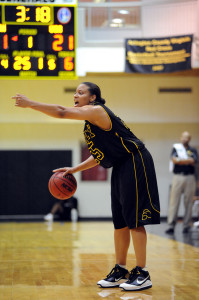5 Characteristics of Good Sports Leaders

Having good Sports Leaders are vital for a team’s success. They help create a beneficial atmosphere for not only players, but coaches and everyone else connected to a team. Sports Leaders help build a bridge between a coach and the team. Instantly providing an accelerated path to developing trust and respect for a coach, while being able to tactfully voice the fears and concerns of the individual players or team as a whole. Good sports leaders display a number of different traits and a coach should be aware of, and encourage these within players they see as having potential to develop the awareness and understanding necessary to fill this role.
As a point of note, effective sports leaders do not necessarily have to hold the position of Team Captain to be able to display the traits listed below. All players can display characteristics of good sports leaders and must be encouraged to do so. Leadership is not a gift, but a skill to be cultivated.
The first characteristic associated with good sports leaders is they inclusive, not exclusive when it comes to fostering a bond between team members. They must be able to see worth in each and every person within the group and associate a place for everyone within the team dynamic. Not everyone will want to be heard, but everyone must have the right and opportunity to speak.
The second characteristic is to think critically. Critical thinking is the ability to not only identify a problem or issue, but be aware of different possibilities or options which can bring about a solution, then choose the most appropriate possibility. This does not mean a good sports leader is always right, but they follow a process that lends itself to the best outcome more often than not.
Another characteristic of good sports leaders is a high sports specific intelligence. Many leaders are not always the most gifted technical player on a team, in fact in some instances this can be a distraction to the leadership role. They do however need to understand and be able to interpret the flow of the game. This Sport IQ also helps good sports leaders in interpreting coach directions.
Additionally good sports leaders are doers, not just talkers. The skill of communicating while important is often over sold. Also overstated is the technical skill and fundamental physical abilities of a leader. Nevertheless, one thing a leader cannot be, is only a mouth on the court or field. A good sports leader must always be the most eager player within the team. They should be the first to training, the first to step forward during demonstrations and the first to inspire others to give more to help the team.
A good sports leader must be balanced in their emotions and behaviour. For many sports teams having an emotion element as part of their warm-up is important getting ready. What is not beneficial however is when this emotion clouds the group’s performance on the floor and results in mistakes or something worse. A leader must look to even out this highly emotional times to give a benefit to the team without a negative or hazard. This requires the player to be always in control of their emotions, focused on the task at hand, and able to communicate this to their teammates.
Good sports leaders can improve a team’s performance, but is constantly understated. Any coach who has ever had a team with a good leader, will forever more be looking for another player in every team they coach to fill this vital role.



I’m looking for some special situations concepts and fundraising ideas?
dmullinsbb@yahoo.com
Hi Darrick, I will write and article this week and the next about these two topics.